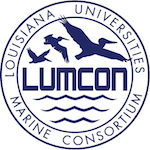I wrote ten blog posts documenting my journey at OCEANDOTCOMM. You can find those posts through the tag #odotcomm18.
This afternoon at OCEANDOTCOMM was the most anticipated by everyone here for this gathering – and I mean everyone! It’s not every day you get to travel and meet members of the Pointe-au-Chien Indian Tribe, receive a tour of their land and invitation to dinner, and then have an open Q&A session.
 According to their website, the “Pointe-au-Chien Indian Tribal Community is located in lower Pointe-au-Chien, a traditional village of their ancestors, the Chitimacha. The Pointe-au-Chien Indians are also believed to be decendants of the Acolapissa, Atakapas, and Biloxi Indians. The Tribe has approximately 680 members.” We learned this evening that approximately 300-400 tribal members live “below the bridge.”
According to their website, the “Pointe-au-Chien Indian Tribal Community is located in lower Pointe-au-Chien, a traditional village of their ancestors, the Chitimacha. The Pointe-au-Chien Indians are also believed to be decendants of the Acolapissa, Atakapas, and Biloxi Indians. The Tribe has approximately 680 members.” We learned this evening that approximately 300-400 tribal members live “below the bridge.”
There are multiple complex issues this community faces. Fortunately, there is an excellent article from Norther Arizona University on Vulnerability of Coastal Louisiana Tribes in a Climate Change Context. The Pointe-au-Chien (PACIT) are the first federally-recognized climate refugees (ironically, it is not climate that is impacting them but sea-level rise (see the PBS NewsHour article/video on In Louisiana, Rising Seas Threaten Native Americans’ Land), and they are not refugees). Their island is protected by a ring levee, but this won’t hold when a hurricane comes through, and the main levee construction exists outside where they would receive protection (and the levee height isn’t up to the 18 feet needed, it is only at 12 feet).
And, this tribe is not yet federally recognized – and neither is their island. This has been an ongoing struggle since 1994, as documented on the U. S. Dept. of Interior’s Indian Affairs – Office of Federal Acknowledgment. Why is recognition important? This will help them as oil companies approach them about laying down a pipe by cutting through their cemetery (yes, you read that correctly).
 I really enjoyed hearing stories from Patty to Pete to Laurie – all tribal members. But what was missing from their stories? Hope. Hope for the future. Their tribal children go away for school and do not return home, as there are no jobs and the cost of living is so expensive (especially for insurance). This also means that the younger generation in the tribe is not learning how to fish and catch seafood. They are not learning about traditional medicinal plants. They also are not speaking French, the language of the tribe (they actually have a modified Indian French). Pete is a 20-year old college student that is going to school to earn an environmental degree so he can come back home and help. In his lifetime, he has seen a barrier island disappear, and he wants to see what he can do to restore the environment.
I really enjoyed hearing stories from Patty to Pete to Laurie – all tribal members. But what was missing from their stories? Hope. Hope for the future. Their tribal children go away for school and do not return home, as there are no jobs and the cost of living is so expensive (especially for insurance). This also means that the younger generation in the tribe is not learning how to fish and catch seafood. They are not learning about traditional medicinal plants. They also are not speaking French, the language of the tribe (they actually have a modified Indian French). Pete is a 20-year old college student that is going to school to earn an environmental degree so he can come back home and help. In his lifetime, he has seen a barrier island disappear, and he wants to see what he can do to restore the environment.
The PACIT cooked us an amazing Louisiana dinner – jambalaya, gumbo, shrimp, crabs… there were 40 of us that they fed and shared their stories. Now, it is up to each of us to continue to tell their story, and to find a way to offer the Pointe-au-Chien Indian Tribe some hope.
These are some images from our time with PACIT. Tribal women were kind enough to show everyone how to extract the meat from the crabs, and allowed us to ask many questions.
 This blog post was created from OCEANDOTCOMM and supported by the Louisiana Universities Marine Consortium (LUMCON).
This blog post was created from OCEANDOTCOMM and supported by the Louisiana Universities Marine Consortium (LUMCON).

[…] we loaded on to a bus and headed over to meet the Pointe-au-Chien Indian Tribe (PACIT). I blogged previously about our visit and the incredible warmth and kindness we received from the tribal members – […]
LikeLike